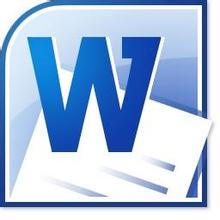0 items

- Description
FP 120 Week 2 Quiz to be taken in class
Instructions
Complete the Week 2 Quiz.
Submit your responses in a Microsoft® Word® document to the Assignment Files tab
Week 2 Quiz
- Which of the following is an example of open-end credit?
- An automobile loan
- A department store credit card
- A mortgage loan
- Single lump-sum credit
- Which of the following is an example of closed-end credit?
- A mortgage loan
- Overdraft protection
- A bank line of credit
- All of the above
- Which of the following is NOT one of the Five C’s of credit?
- Capacity
- Collateral
- Conditions
- Credit
- Which of the following is a characteristic of this Five C: Capacity?
- Credit payment history
- Total net worth
- Present debt
- None of the above
- Which of the following is NOT a credit bureau?
- Equifax
- Experian
- Fair Isaac Corporation (FICO)
- TransUnion
- Which of the following is the most effective way to improve your credit score?
- Pay your bills on time.
- Never exceed your credit limit.
- Reduce your credit utilization rate.
- Close your credit card accounts as soon as you pay them off.
- Experts suggest that the debt payments-to-income ratio should be a maximum of
- 0%
- 10%
- 20%
- 30%
- When calculating the debt-to-equity ratio, the following is NOT included
- Credit card balances
- Open-end credit
- Auto loan balances
- Mortgage balances
- Rachel has a net monthly income of $2,500. She has a monthly auto payment of $275, a student loan payment of $150, and a minimum credit card payment of $50. What is her debt-payments-to-income ratio?
- 8%
- 13%
- 19%
- 22%
- If you can prove a creditor has discriminated against you for any reason prohibited by this Act, you can sue for actual damages plus punitive damages, up to $10,000.
- Fair Credit Billing Act
- Truth in Lending Act
- Equal Credit Opportunity Act
- Credit Card Accountability Responsibility and Disclosure Act
- Which of the following is NOT true about the Fair Credit Reporting Act?
- It regulates the use of credit reports.
- It requires deletion of out-of-date information.
- It places limits on who can obtain our report.
- It gives borrowers the right to know why they are denied credit.
- Which of the following is often the first sign of a stolen identity?
- You receive bills for a credit card you never opened.
- You see charges to your account for items you purchased.
- You receive a duplicate credit card from your credit card company.
- All of these are typical signs of a stolen identity.
- If you think your identity has been stolen, which of the following actions does the Federal Trade Commission recommend you take immediately?
- Call 911.
- Contact your local bank.
- File a police report.
- All of these steps should be taken immediately.
- When you have serious debt problems, where is the best place to seek help?
- From a debt consolidation company
- From an independent consumer credit counseling agency, such as the National Foundation for Credit Counseling
- From a credit deferral service
- From a private loan organization, such as a bank or credit union
- Personal bankruptcy can be filed under which section(s) of the U.S. bankruptcy code?
- Chapter 7
- Chapter 11
- Chapter 13
- Chapters 7 and 13
- All of the following are signs of financial trouble except:
- You use savings to pay for necessities such as food and utilities.
- You exceed the credit limits on your credit cards.
- You pay your credit card bills in full each period.
- The total balance on your credit cards increases each month.
- Which of the following is NOT a step in correcting an error on your credit report?
- Contact credit reporting bureaus.
- Contact the creditor.
- Allow 30 days for correction.
- Stop all payment on the disputed account.
- Which of the following are examples of what the Fair Credit Billing Act does?
- Corrects billing errors
- Allows creditors 30 days to investigate a dispute
- Requires deletion of out-of-date information
- All of the above
- Which of the following are examples of what the Fair Credit Billing Act does?
- Corrects billing errors
- Allows creditors 30 days to investigate a dispute
- Requires deletion of out-of-date information
- All of the above
- A direct loan for personal purposes, home improvements, or vacation expenses is called
- A credit card
- A revolving check credit
- Interest
- An installment cash credit